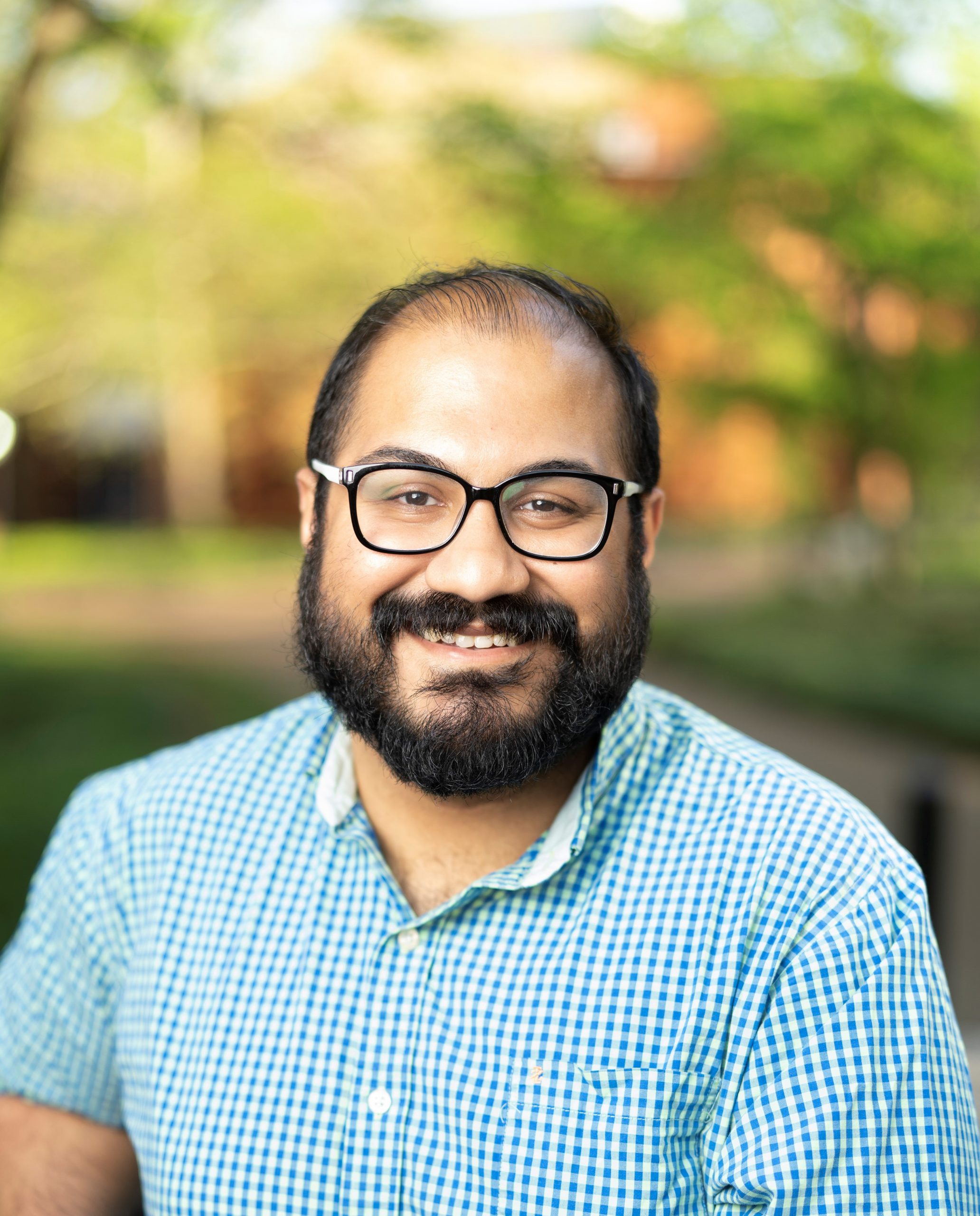Five Vanderbilt Law students worked pro bono over Spring Break at the Tennessee Justice Center in Nashville, observing General Sessions Court proceedings and developing tools designed to support pro se litigants.
Raghav Gupta ’24 led a team that included 1Ls Delaney Beck and Madison Hoover and LL.M. Class of 2022 students Junhan Wang and Philo Zaki. The student volunteers observed General Sessions Court proceedings under the supervision of attorneys at the Tennessee Justice Center who are working to improve processes for self-represented litigants in civil cases.

“The court handles small claims, evictions, credit collection and some disputes between individuals, and most of the parties who come before the court are unrepresented,” Gupta explained. “Our group observed civil proceedings and spoke to pro se litigants about their experiences.”
In Tennessee, the state Supreme Court sponsors a Justice for All initiative that offers people who cannot afford to hire a lawyer an online guide to available free legal resources. However, these options are limited, and some require access to a computer, which low-income litigants may not have, or must be accessed well in advance of the court date by phone. Throughout the Pro Bono Spring Break week, student volunteers sought out and interviewed pro se litigants appearing in General Sessions Court to determine if they had been able to access and use any of these resources and how helpful they had been.
“The ultimate goal is to help people who must represent themselves in General Sessions Court understand the proceedings and learn things they can do improve their outcomes,” Gupta said. “Our task was to find out what kind of information people representing themselves need and would find most helpful and how that information could be made accessible to them.”
Team members learned that approximately 80 percent of the cases before the General Sessions Court resulted in default judgments because parties facing legal actions did not appear in court. The students found that the archaic court forms that summon defendants to appear do not clearly communicate their rights and responsibilities, or the consequences of failing to appear. The students also observed pro se litigants who did appear to accept less than favorable settlements, such as a speedy eviction. “Not having access to a lawyer was a clear disadvantage. We observed landlords use pro se litigants’ lack of knowledge against them,” Gupta said. “People who owed back rent or had other debt didn’t know their rights as debtors or tenants, and they were representing themselves in their own evictions and debt collection proceedings, while the landlord or creditor had a legal representative.”
When students discussed their efforts with General Sessions Court judges, “They were very supportive of creating better and more accessible resources for people who can’t afford to hire a lawyer and end up representing themselves,” Gupta said.
Gordon Bonnyman, a TJC attorney who coordinated the students’ work, was enthusiastic about their contribution, “Tennessee’s General Sessions Courts, like their counterparts in other states, are where most poor people encounter the civil justice system. The stakes for the unrepresented, like eviction and garnishment of wages, are enormous. It was inspiring to work with students willing to devote their spring break to helping improve the process for those who must go to court without a lawyer.”
First launched by Darrius Woods ’17, Vanderbilt’s pro bono spring break program is designed to enable students to gain meaningful legal experience and boots-on-the-ground exposure to public interest work in a variety of settings. In past years, students have advocated for immigrant workers at the Mississippi Center for Justice, supported the nonprofit Appalachian Community Federal Credit in Johnson City, Tennessee, and assisted Atlanta Legal Aid attorneys combatting predatory lending practices, among other projects.
“The pro bono spring break program gives our students, especially 1Ls, the opportunity to participate in service work that often motivated them to come to law school” said Miller. “We are grateful to our public interest partner organizations who work with us to create these valuable hands-on learning and service opportunities for students.”
Miller’s office works with student leaders to plan and recruit volunteers for the Pro Bono Spring Break trip each fall. Students may also opt to sign a Pro Bono Pledge to volunteer a minimum of 25 hours per year of pro bono legal and social service work. A second team of VLS students worked at the Appalachian Citizens’ Law Center in Whitesburg, Kentucky, during spring break.
Gupta plans to work for the U.S. Attorney’s Office in his home state, New Jersey, during summer 2022. “I’m interested in government service and looking forward to that experience,” he said.